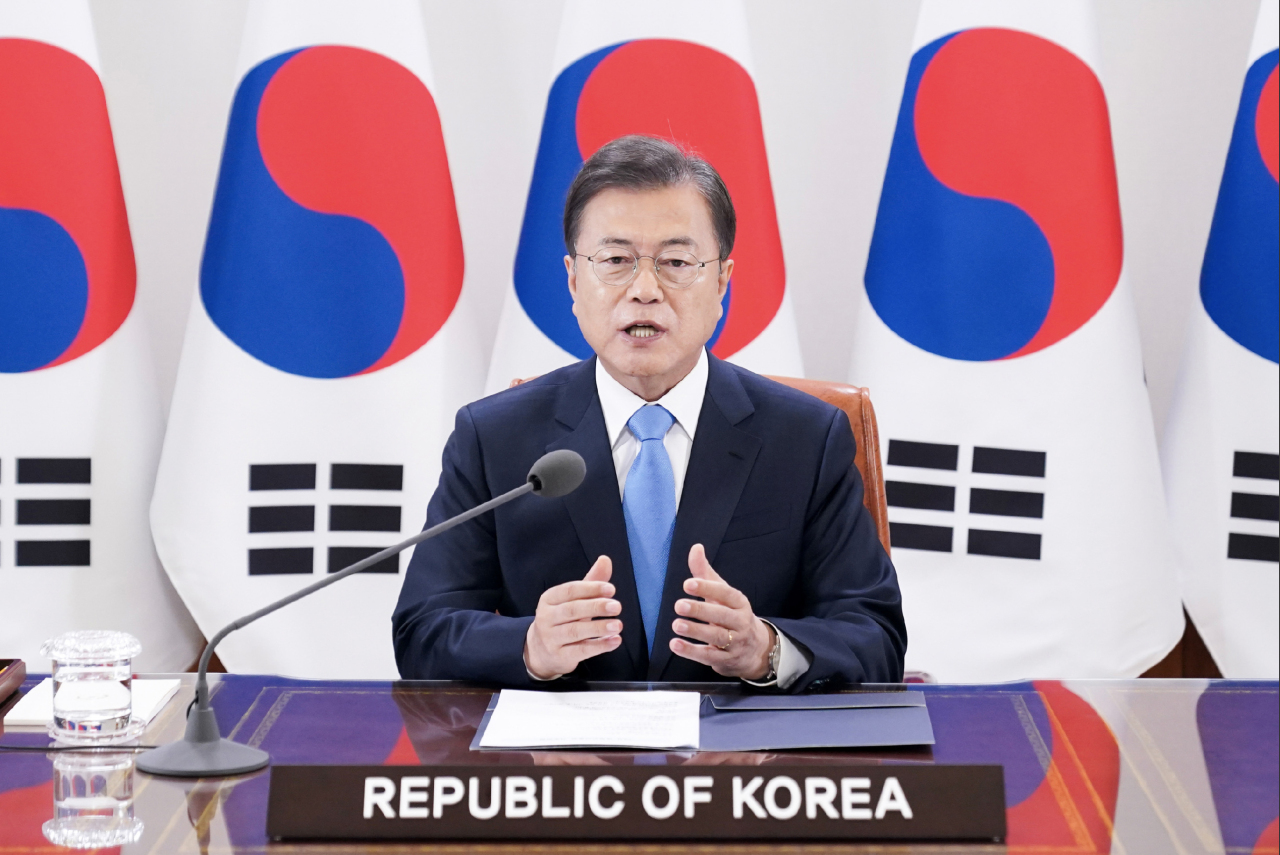Moon says freedom-based cooperation behind S. Korea's anti-virus fight
By YonhapPublished : May 18, 2020 - 20:24

South Korean President Moon Jae-in on Monday suggested the need to spread "solidarity and cooperation" across the globe as nations struggle to stem the coronavirus pandemic.
In a special speech for the World Health Assembly's video session, he described the approach as the "strongest weapon" against the virus. The speech was pre-taped and played at the forum of health ministers, which is the decision-making body of the World Health Organization.
"One thing is absolutely clear. Sharing information and cooperating with one another demonstrate a power that no virus will ever have -- a power that only humans possess," he stressed.
He shared South Korea's experience of having effectively slowed infections without lockdowns in any areas as one of the first countries hit by COVID-19.
He called the strategy "the choice of a freedom for all."
"Rather than regarding our neighbors as dangerous spreaders of the virus or enforcing nationwide lockdown measures, we chose to protect their safety for the sake of our own safety," Moon said.
"We kept our borders open and maintained our ties of exchange, while also providing diagnostic kits, face masks and other supplies as much as we could."
He cited the three main principles of the government’s quarantine efforts: openness, transparency and democracy.
The president pointed out, however, that South Korea is still far from complete triumph over the virus amid sporadic cluster infections.
"Moreover, the ongoing global pandemic still poses grave threats. If we do not come up with a viable treatment option or a vaccine, a new wave of infections could break out once again," he warned.
He proposed that countries expand cross-border humanitarian assistance and work closely together to develop vaccines and treatments.
"A novel infectious disease could emerge at any time, and we must be able to respond more quickly and effectively," he emphasized. "Infection-related data should be shared among countries in a more transparent manner, and an early warning system and cooperation mechanism must be jointly established." (Yonhap)








![[Kim Seong-kon] Democracy and the future of South Korea](http://res.heraldm.com/phpwas/restmb_idxmake.php?idx=644&simg=/content/image/2024/04/16/20240416050802_0.jpg&u=)








![[KH Explains] Hyundai's full hybrid edge to pay off amid slow transition to pure EVs](http://res.heraldm.com/phpwas/restmb_idxmake.php?idx=652&simg=/content/image/2024/04/18/20240418050645_0.jpg&u=20240418181020)

![[Today’s K-pop] Zico drops snippet of collaboration with Jennie](http://res.heraldm.com/phpwas/restmb_idxmake.php?idx=642&simg=/content/image/2024/04/18/20240418050702_0.jpg&u=)